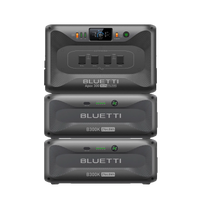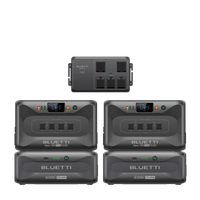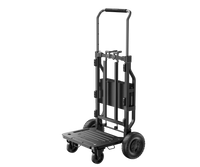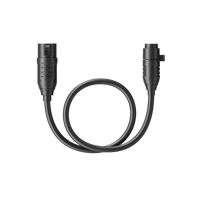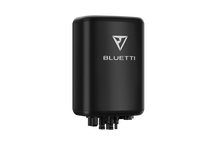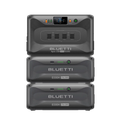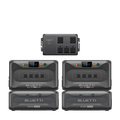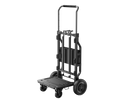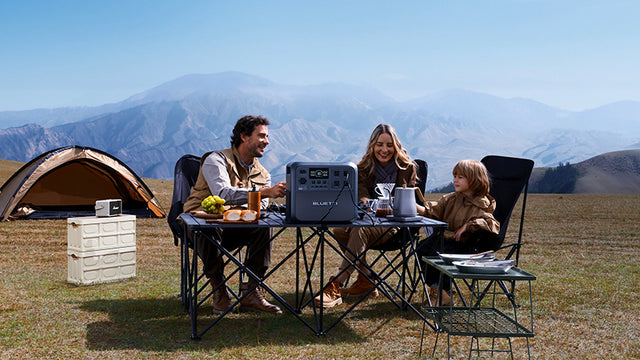Your cart is empty
Shop our productsSolar carports are Electric Vehicle (EV) charging stations made of solar panels and are becoming increasingly commonplace in both private and public parking areas. The potential for solar carport installations is enormous: Research suggests that parking lots take up between 14 and 20 percent of city land.
Think about the energy we could harness by equipping these otherwise-useless areas with solar canopies and carports. Alongside serving as charging stations for EVs, solar carports and canopies can even shield vehicles from precipitation and UV light.
The slope of the roof and any potential shading barriers, such as chimneys, trees, or surrounding structures, are factors that must be considered when installing roof-mounted systems. Solar carports, in contrast, can have their orientation adjusted to the best possible angles in order to make the most of the available sunlight.
How Does A Solar Carport Work?
Solar carports generate solar energy using the same technology as is utilized by standard ground-mounted or rooftop solar energy systems. The photovoltaic effect is the mechanism that a solar carport uses to convert the energy of photons, which are particles of light, into electricity. Solar carports can be put on the ground or on the roof.
When a photon strikes a solar panel, the energy it imparts allows electrons to pass through all of the solar cells, which results in the production of an electric current. The electricity that is produced is known as direct current (DC), and it is direct current that is utilized in most devices that are powered by batteries. With the help of an inverter, this direct current is changed into alternating current (AC), which may then be used in homes or businesses.
Solar carports use the same tech as any other solar arrangement but offer a number of important additional advantages. To begin with, solar carports do not call for any extra land as they make use of unused space directly above an existing parking spot. Second, solar carports are positioned higher than an average ground-mounted system, which allows optimal orientation in order to get the most out of the sun's rays.
Residential v/s Commercial Solar Carports
So far, solar carports are not nearly as common in home markets across the United States as they are in the business sector. The installation of enormous solar canopies in parking lots is a concept that has gained widespread support among commercial enterprises.
There is a wide variety of floor plans, dimensions, and design options available for solar canopies that are used in residential and commercial settings. A photovoltaic carport normally has one, two, or three rows wide of parking; however, this can vary depending on the number of parking rows that are needed.
Solar parking lots, on the other hand, can be as vast as 10+ parking rows and still be considered parking lots. The installation of a solar canopy has the potential to either power your home or transform a large expanse of open pavement into a significant electricity generator.
The main way in which the construction of a solar carport varies, other than the size of the carport itself, is in the particular angle at which the panels are installed. In order to provide shade and protection for a greater number of vehicles, the panels will either be angled upward in a single direction, curved and angled in a single direction resulting in a flat surface, or minimally angled in so far that they come across as flat – generally to maximize the area being covered.
As far as carports and canopies are concerned, residential properties have an edge over commercial properties due, in part, to the materials that are employed in the construction of these structures. Installing a steel foundation, which is nearly always required for commercial solar carports, adds a significant amount of price to the whole project.
Smaller residential carports, on the other hand, offer more leeway in terms of the structure's material and form; for example, a homeowner could opt for an expansive carport setup or a compact patio cover in order to accommodate a more modest solar power installation.
Benefits of Solar Carports
Approximately ninety five percent of the time, we have no use for our cars, and the locations where we keep them take up considerable room. In urban areas, open parking lots account for roughly forty percent of total paved space. Parking a car on your paved driveway is a poor use of your land. There are several advantages to installing a solar carport – monetary and otherwise.
1) Additional Power
The additional energy that solar carports generate is the most noticeable benefit.
You can use solar carports to charge EVs in both commercial and residential settings, or pair them with a battery backup system to make a home more resilient during power outages and save monthly electricity expenditures.
2) Commercial Advantages
In high-priced commercial areas, it makes financial sense for a business to install solar carports to cover their parking lots.
Solar carports not only save money by shading and protecting employees' or customers' vehicles from the elements, but also by producing electricity for the company itself.
Also, by generating RECs (Renewable Energy Credits) that can be sold to other industries looking to offset their emissions, businesses and entire industries can either lower their carbon footprint or generate cash.
3) The Prevention of Heat Islands
Uncovered pavements often facilitate the creation of heat islands – areas where the average daytime temperature is 1-7 degrees Fahrenheit greater than the temperature in adjacent areas. Young children, senior citizens, and low-income groups are already more vulnerable to the effects of rising global temperatures, and this only makes matters worse for them.
A carport installed at a home or over a commercial parking lot can absorb solar radiation and turn it into usable energy, relieving the impact of the reflected heat.
4) Easier to Maintain
A solar carport is easier to access and simpler to maintain than a rooftop installation. It does not require as much climbing as a pitched roof does to clear snow or debris, and it may be washed down with water from time to time.
If a roof ever needs fixing for whatever reason, the homeowner can do so without removing any panels.
5) Improved Sun Exposure
Carport solar panels have more flexibility in their orientation to the sun since they are mounted on a frame rather than adhering to the fixed angle or pitch of a current roof. It may not be worth installing solar panels on a roof that faces east or west due to a lack of sunlight, but a freestanding carport may be set up at any angle.
Moreover, depending on its height, a solar carport can benefit from a solar tracker that allows it to move according to the position of the sun throughout the day.
How Do Solar Carports Compare to Rooftop Solar Systems?
A rooftop system is the most cost-effective method of generating electricity; nevertheless, many homeowners have major challenges in maximizing the amount of solar energy that can be harvested from their rooftops due to factors such as area, angle, and obstructions. In addition, ground-mount systems might not be an option for houses and companies that are limited in the amount of available space. Solar carports offer a solution that can be leveraged in either of these two scenarios.
Solar carports, however, are not only a fallback option for people who cannot install ground or rooftop systems; in many cases, they are actually the more rational choice. Solar carports offer a larger degree of flexibility for the ideal solar panel orientation (as mentioned above), and they also make use of the area that would otherwise be wasted.
Since the panels themselves serve as the roof, there is no need to worry about issues such as size, orientation, shadowing, or roof angle, when dealing with solar carports. Solar carport support systems are purposely constructed to allow ideal exposure to sunshine, which is an option that the majority of roofs are unable to provide.
Conventional carports can protect cars against snow, wind, rain, and sunlight. It is possible to enhance the fuel economy of a vehicle by parking it in the shade while it is being stored. This is because the driver will have less need to crank up the air conditioner when they first enter the vehicle. A solar carport, however, offers all of these benefits and more, as it not only shields a vehicle from the elements but also generates clean electricity that can be used inside a home or place of business.
Do Solar Carports Make You Eligible for the Federal Solar Tax Credit?

If you install a solar carport on your property, you can claim the federal solar tax credit.
Installing a solar energy system, such as a solar carport, qualifies for a 30% tax credit from the federal government. So, if the total cost of your carport installation was $10,000, the 30% solar tax credit will bring it down to $7,000.
NOTE: Before constructing your own solar carport, you should consult a tax attorney to make sure you will still be eligible for the federal solar tax credit. At times, DIY solar carports or other projects do not qualify for this incentive, which is why it is best to be clear before commencing the construction.
Is a Solar Carport Worth It?

The answer to this depends upon your unique circumstances. For example, there may be little use in installing solar panels if you are going to be moving soon and not using the home long enough to make up the initial investment through savings on your electricity bill.
However, the installation could boost the resale value of your residence, allowing you to break even or even earn a profit in the event that you ultimately decide to sell and relocate. Plus, if you qualify for the solar tax credit, you can bring down the initial carport cost and recoup your investment even quicker.
As far as businesses are concerned, solar carports offer the option to tailor the solar array size as per your needs. So, if your business requires a great deal of energy, using a large car park instead of the roof may be a better idea.
If you are looking for portable solar panels for your solar carport, we invite you to check out our wide range of options. We offer many different kinds of solar panels, batteries, and kits, and can help you pick one based on your budget, purpose (commercial or residential), energy needs, and location.
To learn more about solar carports and if they are the right way to go for you or to explore your solar panel options, please feel free to get in touch with us.
Shop products from this article
Be the First to Know
You May Also Like

What Does a 30% Federal Solar Tax Credit Mean and How to Apply?
Governments around the world are offering programs that encourage homeowners to switch to solar energy. Among the most notable programs is the 30% Federal Solar Tax Credit. It reduces your...

Deadly Flooding Devastates U.S. South and Midwest — What You Need to Know















